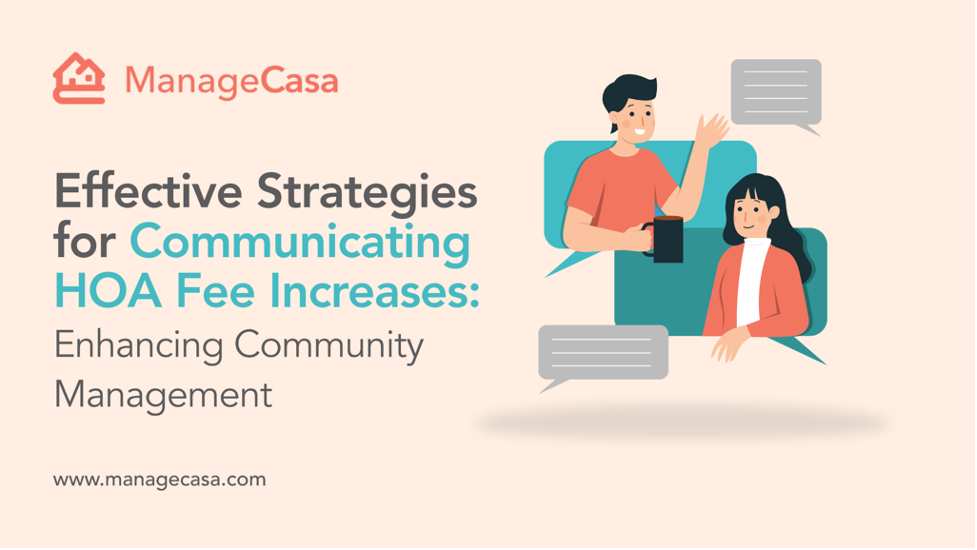7 Hot Trends in HOA / Community Association Management
Top Trends in HOA & Community Association Management
Challenges and trends always equate to opportunities. Because when one association is bogged down with poor practices, another association surges ahead and succeeds using improved practices.
Opportunities open to those who progress, manage more cost-effectively, adopt new service models and provide a better value proposition for their residents and boards. No one is eager to work for a backward organization. The pain, frustration, and disappointment just aren’t worth it.
Which Trend Will Generate the Most Benefit for your Organization in 2024?
Will 2024 bring meaningful growth and progress within the community association management sector?
It’s not always easy to recognize important change because it’s not highlighted in the media and its full value can be hard to quantify. But changes are afoot in the association sector. Stay up on change here on our blog, and consider attending an association conference in 2024.
What are the Most Notable Challenges?
Cost pressures, staffing challenges, regulatory demands, efficiency through technology, along with board and resident participation need a solution. It’s the culmination of so many challenges that creates crisis for many communities.
Operational Costs: inflation has been a factor for quite a while now, and higher costs won’t be receding as the economy regains its vigor in 2024/2025. Association and HOA fees are rising to meet with the cost challenges, yet are setting in resentment and resistance as inflation eats resident budgets.
Aging Infrastructure Taking Away Resources: Aging communities find buildings, roads, and utility systems eroding and in need of constant maintenance, repair and replacement. Budgets and staffing time are eaten up to keep communities in operation.
Staffing: Finding qualified staff at current wage levels amidst growing competition will require changes. The volume of work, work tools provided, training, salary, and availability of opportunities in other associations will draw good association managers and staff away from poorly run, antiquated associations.
Board Member Recruitment: finding engaged and knowledgeable individuals to manage associations for free is always a challenge. When associations have high friction/litigious environments and don’t use work streamlining platforms, few are willing to risk the challenge. Enabling board members with proper training, resources, and ongoing support to manage their responsibilities effectively is needed, and ensuring you have an adequate budget to run your association is required.
Technology Adoption: Newly developed SaaS software platforms require a short setup and learning period. Since current practices are fragile, HOA boards or association managers keep hanging onto legacy solutions, which pulls them deeper into risk. Most are preparing for the upgrade to new technology at least mentally, but more promotion is needed before they overcome procrastination and inertia.
HOA Management Business Objectives
Let’s take a quick look at what might be the 7 Key tasks association managers must contend with in 2024:
1. Recovering Revenues
Many associations suffered reduced revenues and dues. Managers had to move to creating revenues online which requires excellence in software and more creativity in providing value that homeowners want. In-person events struggle for attendance and fears and health protocols tend to erode participation.
Waste and energy demand in residential communities grew and will stay elevated due to the work at home reality. Trash volume in residential communities jumped about 50% in the pandemic and likely are still very high. Demand like this can open up new revenue streams for creative boards/management firms. Virtual revenue sources are the focus now. 5G data services might be a trending technology in some communities as well.
2. Cost Inflation
With government continuing their big spending ways, inflation and supply shortages may be a persistent threat to community managers. Costs for contractors, utility services, and materials are rising.
Setting the correct HOA fees and condo fees could protect budgets and help deal with ever-increasing costs of electricity, staffing, fuel, water, equipment, energy, climate protection regulations, and waste management. These fee increases must be communicated well to avoid homeowner revolts and other issues.
3. Cybersecurity Threats
 The world is becoming a hostile place politically and unfortunately, some criminals are increasingly using the Internet to launch attacks on companies in the association management sector. Why? They’re easy targets for disruption, and any infiltration causes American great psychological harm. Those associations that continue to use insecure servers, outdated software and legacy apps make themselves easy targets for global criminal hackers.
The world is becoming a hostile place politically and unfortunately, some criminals are increasingly using the Internet to launch attacks on companies in the association management sector. Why? They’re easy targets for disruption, and any infiltration causes American great psychological harm. Those associations that continue to use insecure servers, outdated software and legacy apps make themselves easy targets for global criminal hackers.
In 2020, real estate tech firm RealPage was hit with a $10.5 million dollar loss along bad PR due to exposed client data. It was still reeling from an earlier hacker attack that cost the property company millions. And in 2021, Douglas Elliman’s property management business was hacked and thousands of residents had their personal data accessed. Douglas Elliman is the largest property management company in New York City, according to the TheRealDeal.
Reports of capturing and convicting hackers is surprisingly rare, especially given the attacks from countries which don’t observe our business laws and treaties. The lesson is clear for HOA managers, is to avoid complacency about data security as you make your operations mobile.
HOA’s should take their time vetting their management company to ensure they’re using modern HOA software, secured via the cloud and super secure environments such as the AWS cloud. You can never be too careful now.
4. Staffing and Managerial Shortages
We’ve always taken a worker surplus for granted, yet wages have risen and more associations are in operation today. Workers have been able to avoid lackluster positions with no benefits or future, and can command higher pay. They’re holding off to find employment in fields with a variety of benefits. HOA and community managers are in short supply, many lacking critical education and certifications.
HOA managers must manage efficiently without errors or costly accidents that result in lawsuits or fines. HOA managers in particular have the challenge of creating positive relations with community members who are more interested in their own wants and needs. That means the demand for managers with communications and soft people skills are rising too.
There is a demand for licensed HOA and Community managers but not enough possess those credentials. Those with licenses and possessing a mastery of HOA management software technology will command a much higher salary in the years ahead.
HOA boards and service companies both will need to improve their recruiting techniques and their marketing efforts to attract the best candidates.
5. More or Less Legal Power for HOAs?
Local and state governments don’t have the resources to police issues at the community level, so some states are considering awarding more power to HOAs to enforce violation policies while others are considering easing association’s rules due to resident complaints.
Highly cited are political signs, parking restrictions, home additions, solar panels, etc. showing a brewing dispute with homeowners about lifestyle freedoms.
If HOA and community boards suffer less power to set appropriate regulations and enforce them, communities could be undermined. That generates much larger workloads and for response management for current HOA service providers. The result? It may raise prices for their services and create a greater need for insurance, and for good communications from board members to convince community members to vote in favor of solid rules.
It’s a political hot potato and right now, and it’s uncertain which way the matter will go.
6. Growing Adoption of Digital Management Solutions
As mentioned, HOAs and community associations are adopting digital HOA platforms, and with remote work and homeowners out and about again, mobile device usage and demand for Internet bandwidth will grow.
Virtual remote management tools will be in demand as more staff work from home. A platform such as ManageCasa™ provides excellent:
- document management and sharing
- portal for each homeowner to communicate with board members, access community documents, pay owner dues, and access community-wide communications
- create budgets and track actuals
- HOA violation tracking
- receive and send payments
- secure cloud-based data management
- charge and collect owner dues
- review architectural applications
- manage board member approvals
7. Web Marketing
HOA management companies typically don’t see themselves as marketers of services and ideas to audiences online. Yet this is one specific facet of business that can facilitate higher budgets, support, and better staffing.
Persuading community members, supporting requests for higher fees and budgets, and communicating value delivered are essential today.
And moving boards and residents to digital platforms is good for you, but overcoming inertia takes some promotional efforts. You can attract key board members and gain the confidence and trust of residents through efficient online marketing. Adopting a digital community management system such as ManageCasa™, gives you direct access to residents, bringing everyone on the same page.
Today’s trends arrive in many ways, and it’s hard to deny to impact of digital technology in enabling more change.
Find out more about how to launch an HOA or POA in Tennessee, Florida, Georgia, North Carolina or South Carolina.
Whatever is trending in the association space, your best asset will be ManageCasa™. Find out more about the power of a complete association management platform.
Contact us now at 415 800 1245 to ask your questions about how ManageCasa can help you manage your Association more effectively


